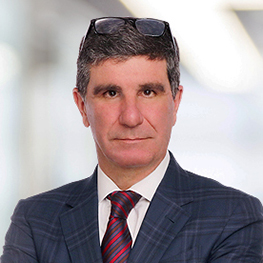When companies collude to fix prices and restrain trade, harm accrues to competitors and individuals, alike. Antitrust lawsuits are used to stop practices that restrain trade and the operation of the free market and to compensate those who are harmed. The goal is to keep the market free, open, and competitive. Carella Byrne attorneys have significant experience and success litigating in this specialized area of the law, including:
- In re: Liquid Aluminum Sulfate Antitrust Litigation, MDL No. 2687 (D.N.J.). Carella Byrne was appointed as Lead Counsel on behalf of direct purchasers of liquid aluminum sulfate for water treatment. The plaintiffs alleged that manufacturers of liquid aluminum sulfate conspired to stay away from each other’s customers by submitting high “throw away” bids that gave the appearance of competitive bidding. Carella Byrne and co-counsel for Plaintiffs worked hard to achieve settlements totaling more than $90,000,000.
Ongoing Litigation
Carella Byrne attorneys are currently litigating the following cases and would be happy to speak to you if you believe you might be impacted by these, or any other, antitrust matter. No question is too small. Please contact us today.
- In re Vascepa Antitrust Litigation Indirect Purchaser Plaintiffs, No. 21-12061 (D.N.J.). Carella Byrne was appointed as one of the Interim Lead Counsel on behalf of indirect purchasers of Vascepa, a drug used to treat high cholesterol. The plaintiffs allege that the manufacturer of Vascepa, Amerin Pharmaceuticals, illegally maintained its monopoly for Vascepa by obtaining patents on the drug by fraud and, once generic versions of Vascepa were approved, by entering into exclusive agreements with all of the manufacturers of the active ingredients in Vascepa to prevent generic manufacturers from obtaining the necessary active ingredients for their own drugs.
- In re Effexor XR Antitrust Litigation, No. 11-5661 (D.N.J.). Carella Byrne was appointed as Chair of Plaintiffs’ Indirect Purchaser Executive Committee. The plaintiffs allege that Teva and Wyeth entered into an illegal reverse-payment settlement agreement, which resulted in delays for the introduction of generic versions of Effexor, which, in turn caused patients and third-party payors to pay more for Effexor than they otherwise would have.


















